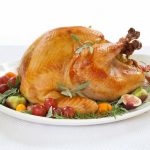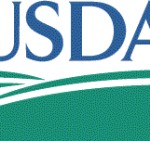Consumer Reports is offering food safety advice when you're cooking some type of meat for the holidays. Ham, beef and pork roasts, turkey, and duck are usually only prepared once or twice a year, so most cooks are unfamiliar with the food safety risks posed by these foods. When buying meats from a stand-alone refrigerator case, don't take the package on top. And if the packages extend above the top of the case, there's a very good chance that meat has entered the temperature danger zone above 40 degrees F. Francis Largeman-Roth, R.D., said, "those cases only keep things truly cold as far as the walls of the case go up." Store these large cuts of meat properly. A fresh turkey should be stored in the refrigerator for only one or two days. Pork and beef roasts can be in the fridge for … [Read more...]
Gillibrand Introduces Meat and Poultry Safety Bill
U.S. Senator Kirsten Gillibrand (D-NY) has introduced the Safe Meat and Poultry Act which aims to strengthen the country’s meat and poultry inspection system and reduce the number of foodborne illness outbreaks. Gillibrand, who is chairwoman of the Agriculture Subcommittee on Livestock, Dairy, Poultry, Marketing and Agriculture Security, said the financial and public health toll these outbreaks have has been exacerbated by the fact that food safety legislation affecting the U.S. Department of Agriculture has not been upgraded in more than a century. One in six Americans are sickened by food poisoning each year, according to the Centers for Disease Control and Prevention (CDC). The public health and economic cost of these illnesses is over $14 billion each year, according to the … [Read more...]
Should You Wash Your Food?
The USDA has put out a food info sheet about safe food handling and washing food. Does this practice promote food safety? Since we're told to wash our hands before preparing food, and utensils and pots and pans, it seems logical that washing food makes it safer to eat. Unfortunately, that's not true. Washing raw poultry, beef, pork, lamb, or veal before cooking it isn't recommended. The bacteria on these foods can aerosolize under the water, spreading three feet in all directions from your sink. That means it can get on your face and lips. Lick your lips once, and you may ingest pathogenic bacteria. In addition, some bacteria are tightly attached to the meat, so you can't remove them by washing. Cooking to a safe internal temperature is the only way to kill these bacteria. Brining … [Read more...]
Central Valley Meat Is Back On Lunch Trays
Central Valley Meat, which was ordered to suspend operations for one week in August after a video showing animal cruelty at its slaughterhouse went viral, has been re-approved for participation in the school lunch program. While experts agree that there was animal cruelty at the slaughterhouse, inspectors from the U.S. Agriculture Department's (USDA's) Food Safety and Inspection Service’s (FSIS) concluded that no food safety violations occurred. Central Valley was quietly readmitted to the school lunch program at the end of August. In the memo, FSIS also states that it "concluded its evaluation of the extensive corrective action plan submitted by Central Valley Meat Company to correct recent humane handling violations and has permitted Central Valley Meat to resume processing. As a … [Read more...]
Nebraska Company That Sold Non-inspected Meat To School System Indicted
The owners of a Nebraska meat company have been charged in a six-count indictment for selling meat that was not inspected or misbranded to the Omaha public school system. Paul Rosberg, age 61, and Kelly Rosberg, age 44, both of Wausa, Nebraska, who own Nebraska’s Finest Meats, L.L.C., were indicted by a grand jury for the District of Columbia. Counts two through four allege that during that same time period, the Rosbergs sold 2,600 pounds of ground beef that was labeled "United States Department of Agriculture (USDA) inspected,"when it was not. Each of those three counts carries a maximum penalty of a three-year prison term, a $10,000 fine, 1 year supervised release, and a special assessment of $100. Counts five and six allege that the Rossbergs made false statements to the U.S. … [Read more...]
If Your Steak Had Some Work Done, Wouldn’t You Want To Know?
What it your steak had some work done? What if it went under the knife or the needle to become more tender? A steak that’s been mechanically tenderized, will still look like a steak and taste like a steak, but it needs to get cooked like a hamburger so it won’t make you sick. The problem is, you have no way of knowing if your steak was mechanically tenderized because that information isn’t required on food labels. But consumer advocates say it’s about time that it is. The Safe Food Coalition has been trying since 2009 to get the U.S. Department of Agriculture (USDA) to require labeling of mechanically tenderized beef products, which account for about 18 percent of beef cuts sold nationwide. This week, the group sent a letter to USDA Secretary Tom Vilsack urging him to take … [Read more...]
FDA Warns Malcore Livestock of Food Safety Violations
John Malcore Livestock, LLC of Luxemburg, Wisc. has committed a number of food safety violations, according to a June 27 warning letter from the U.S. Food and Drug Administration (FDA). The FDA’s investigation of the livestock operation began after the discovery that, In late December, Malcore Livestock offered an adulterated animal for sale. “Under section 402(a)(2)(C)(ii) of the FD&C Act, 21 U.S.C. § 342(a)(2)(C)(ii), a food is deemed to be adulterated if it bears or contains a new animal drug that is unsafe under section 512 of the FD&C Act, 21 U.S.C. § 360b. Further, under section 402(a)(4) of the FD&C Act, 21 U.S.C. § 342(a)(4), a food is deemed to be adulterated if it has been held under insanitary conditions whereby it may have been rendered injurious to health,” the … [Read more...]
USDA: Grill, Baby, Grill! But Do It Safely
The U.S. Department of Agriculture's Meat and Poultry Hotline fields a lot of questions about the proper way to grill meat and poultry, and with the season of summer barbecues kicking off this weekend they have compiled a list of tips and frequently asked questions. Here is a summary of the recommendations: At The Store Choose packages that are not torn and feel cold. If possible, put them in a plastic bag so any leaking juices won't contaminate other foods. Make the meat counter the last stop at the grocery so purchases stay cold as long as possible. Separate raw neat from other food in your cart and bag it separately. If the meat is going for a long car ride, it needs to be stored on ice in a cooler or insulated bag. At Home Refrigerate or freeze raw meat and … [Read more...]












